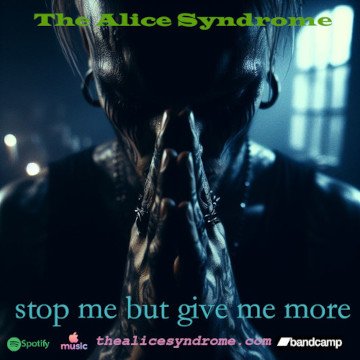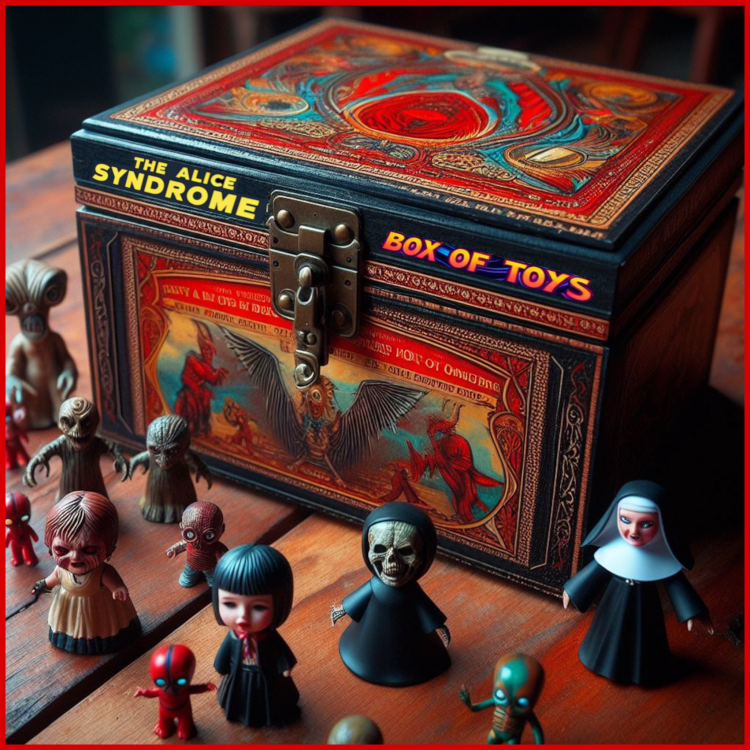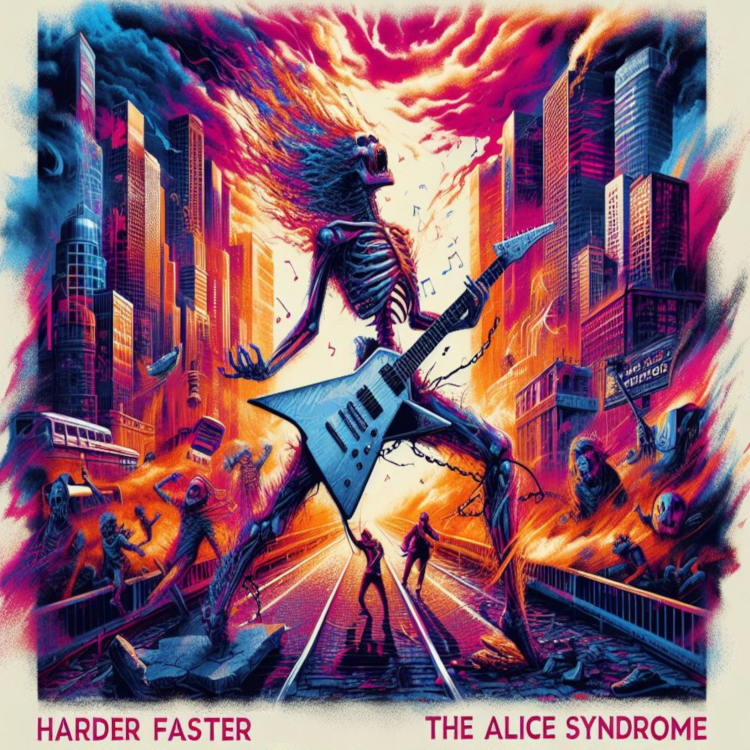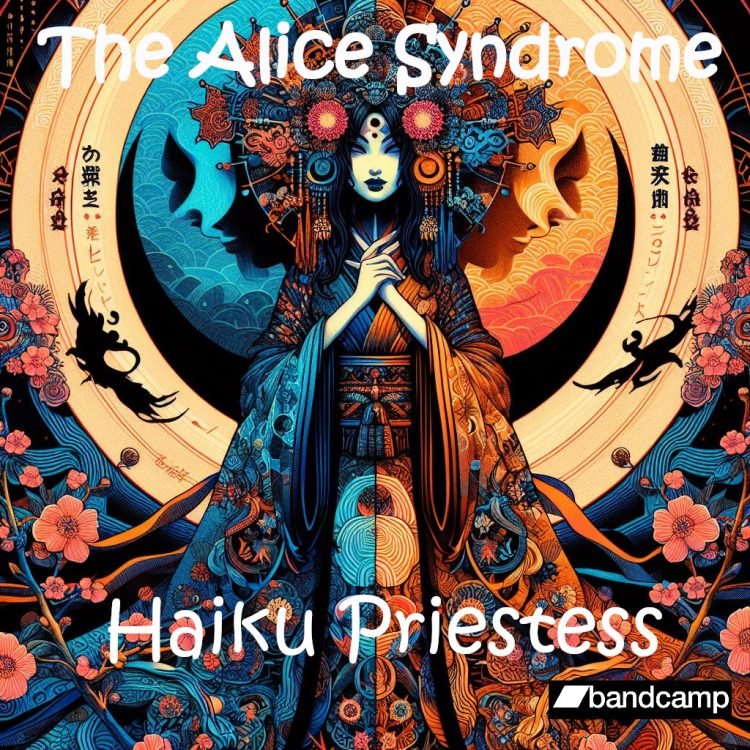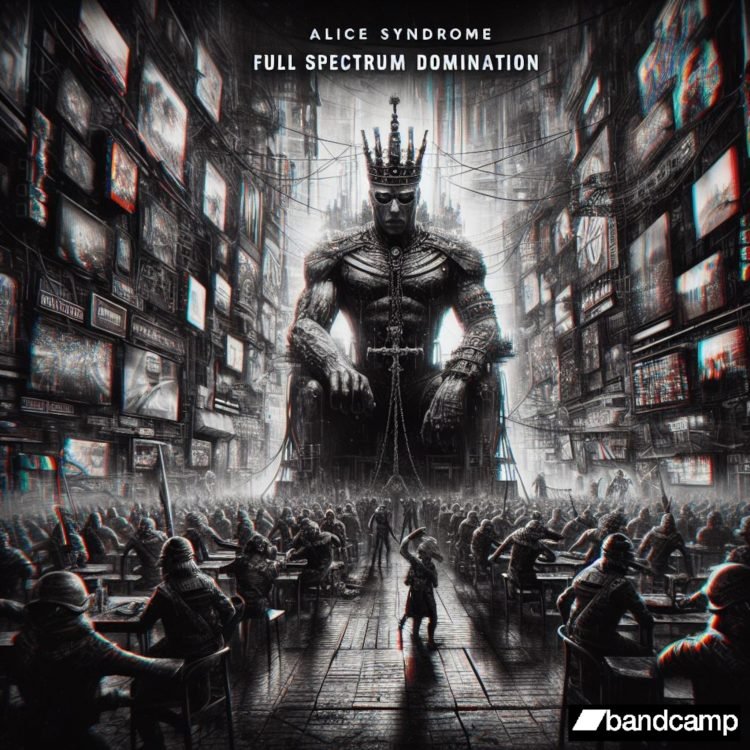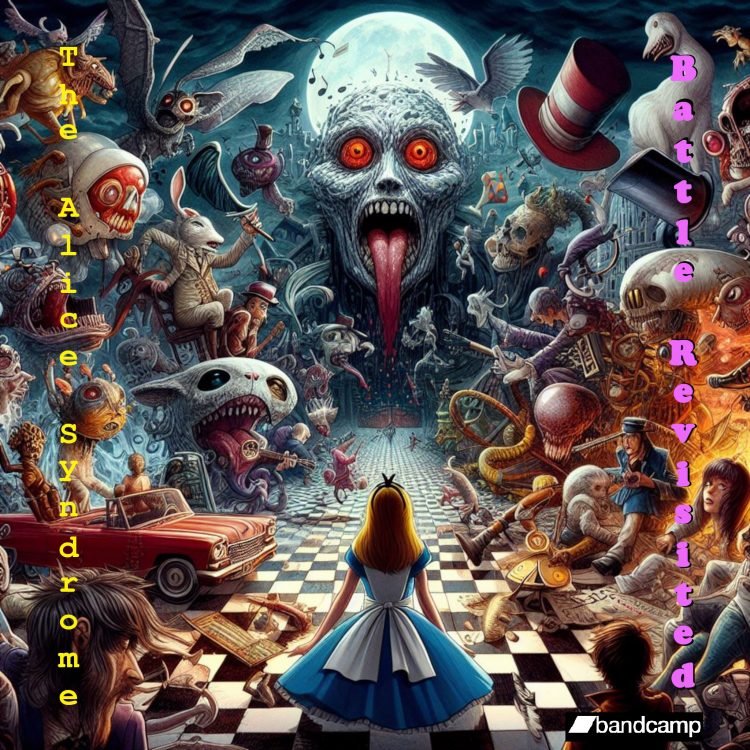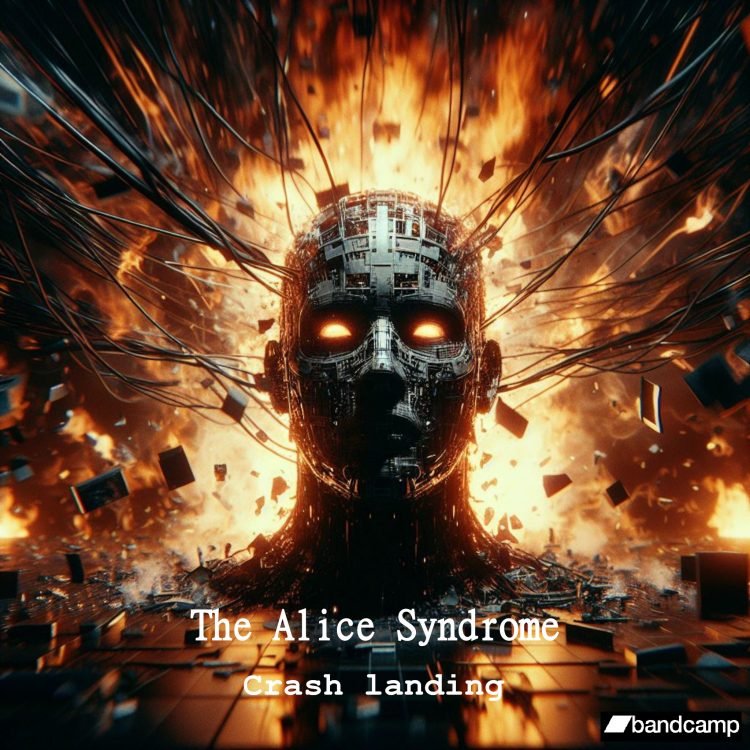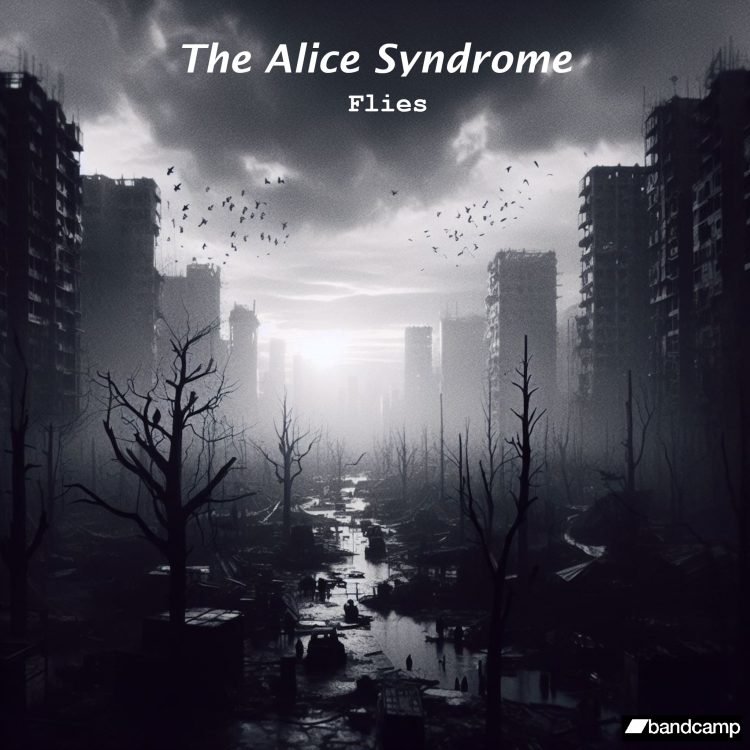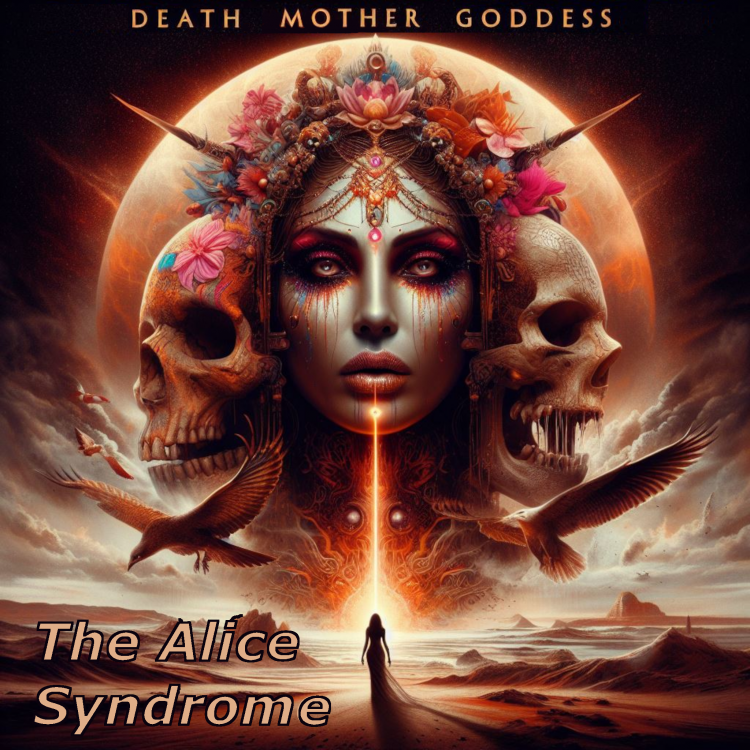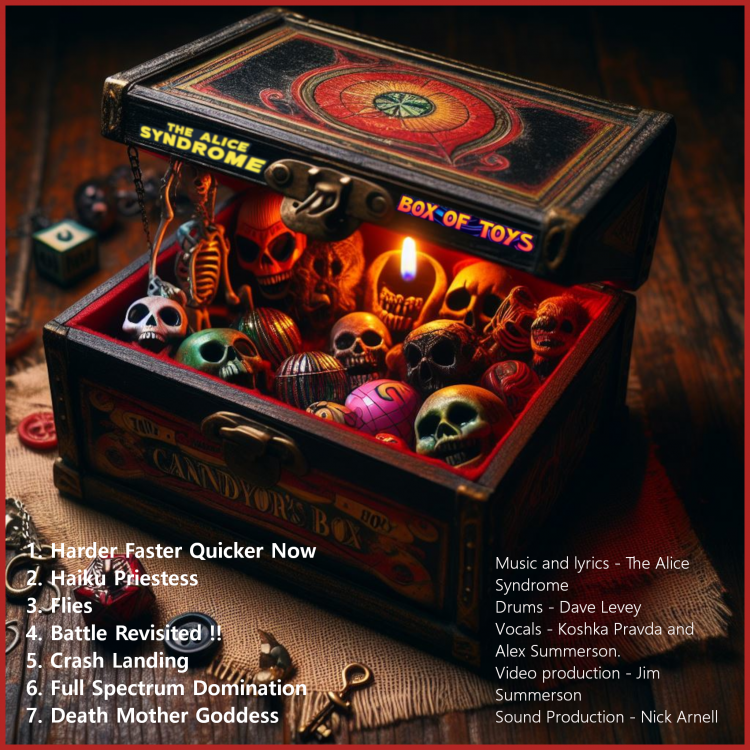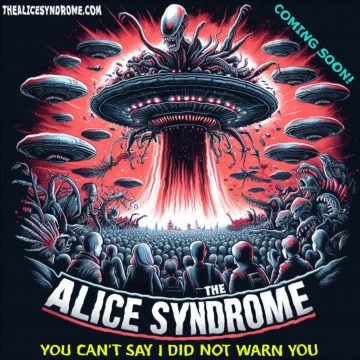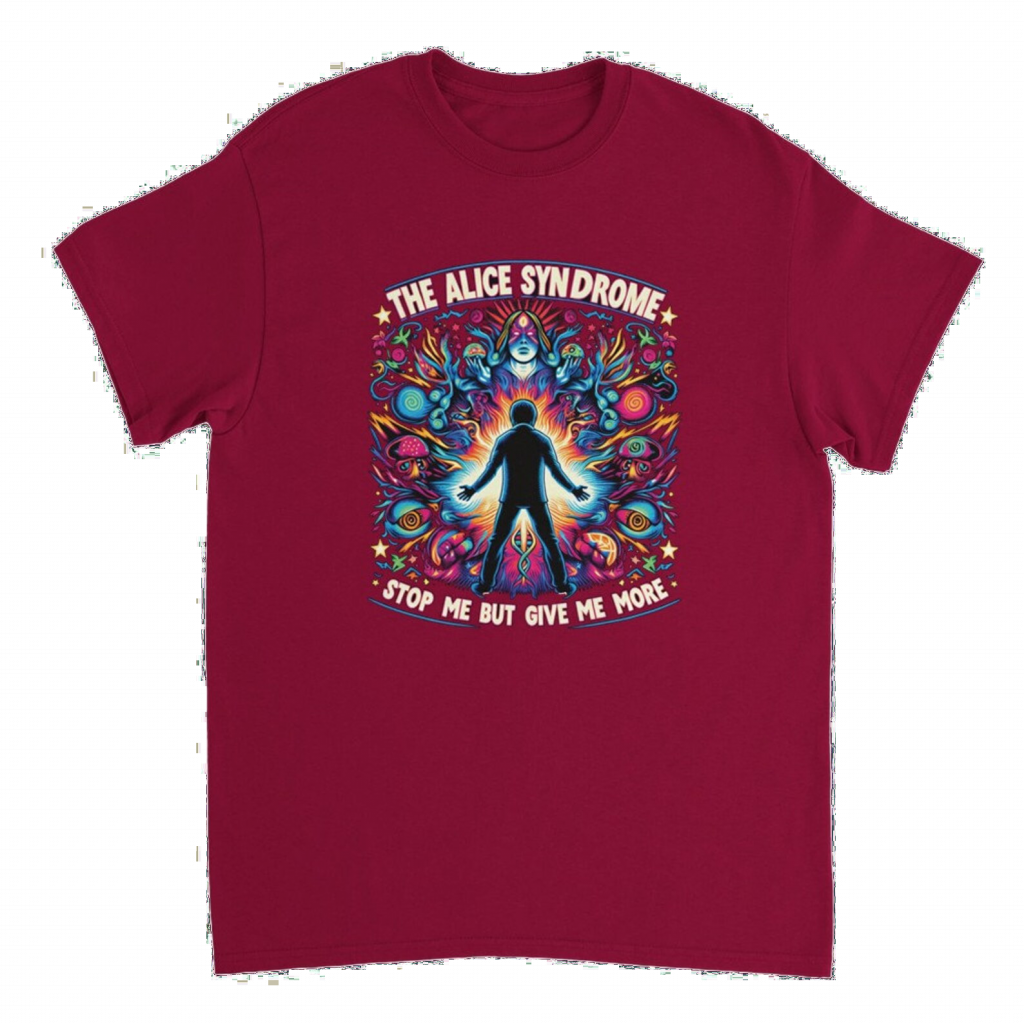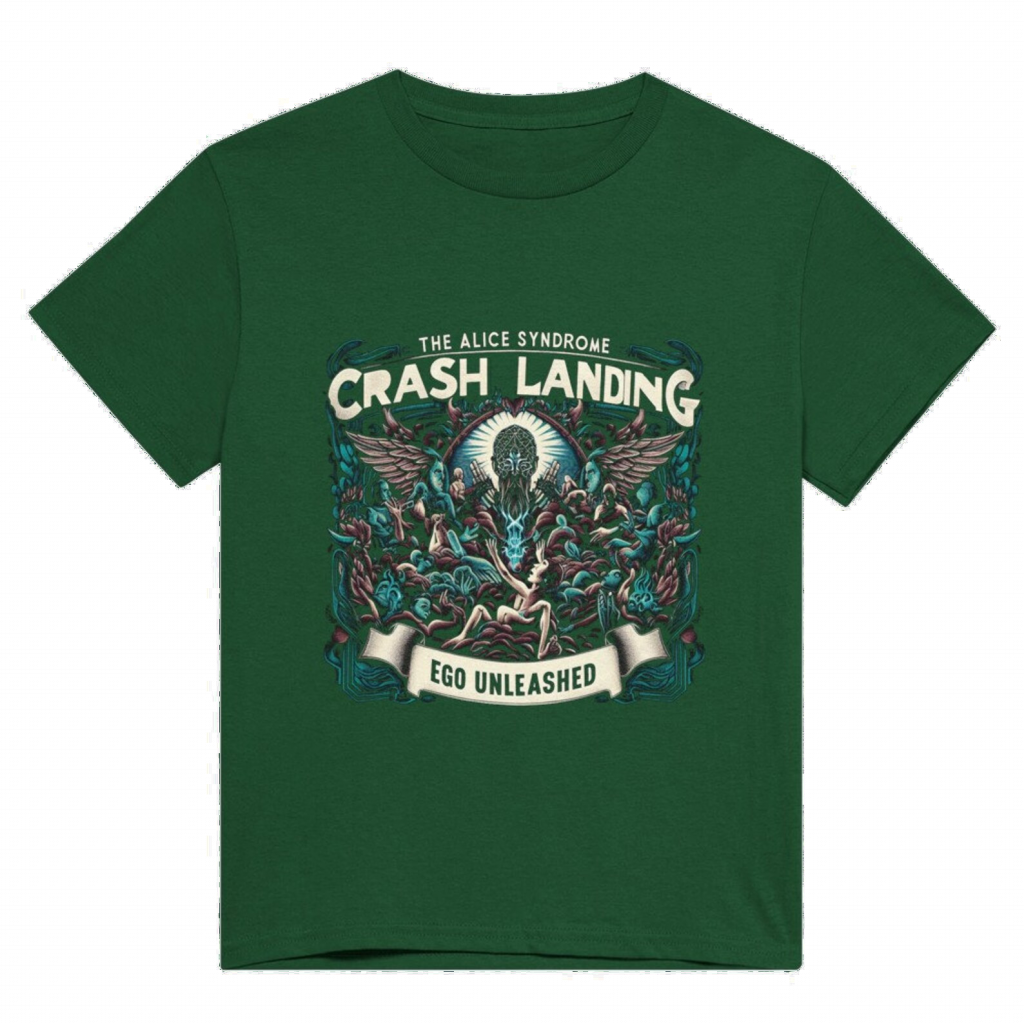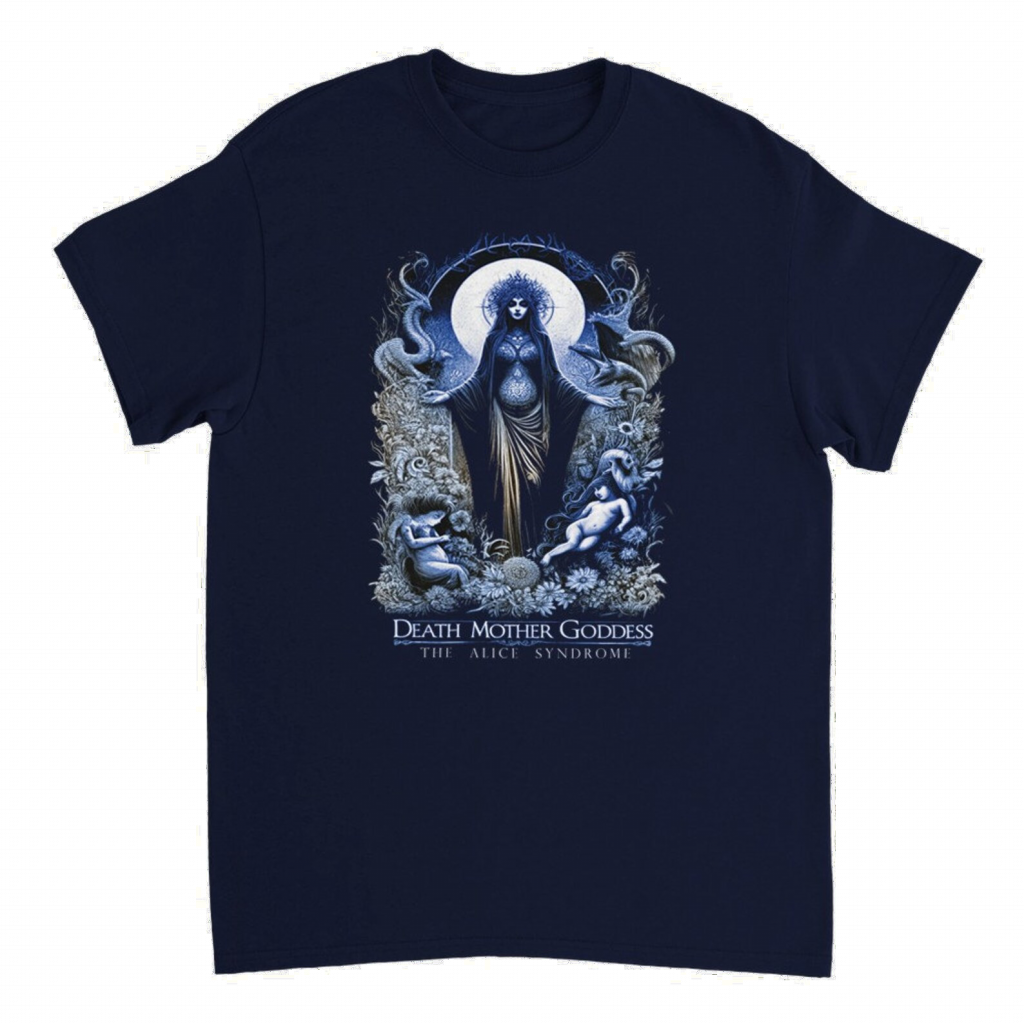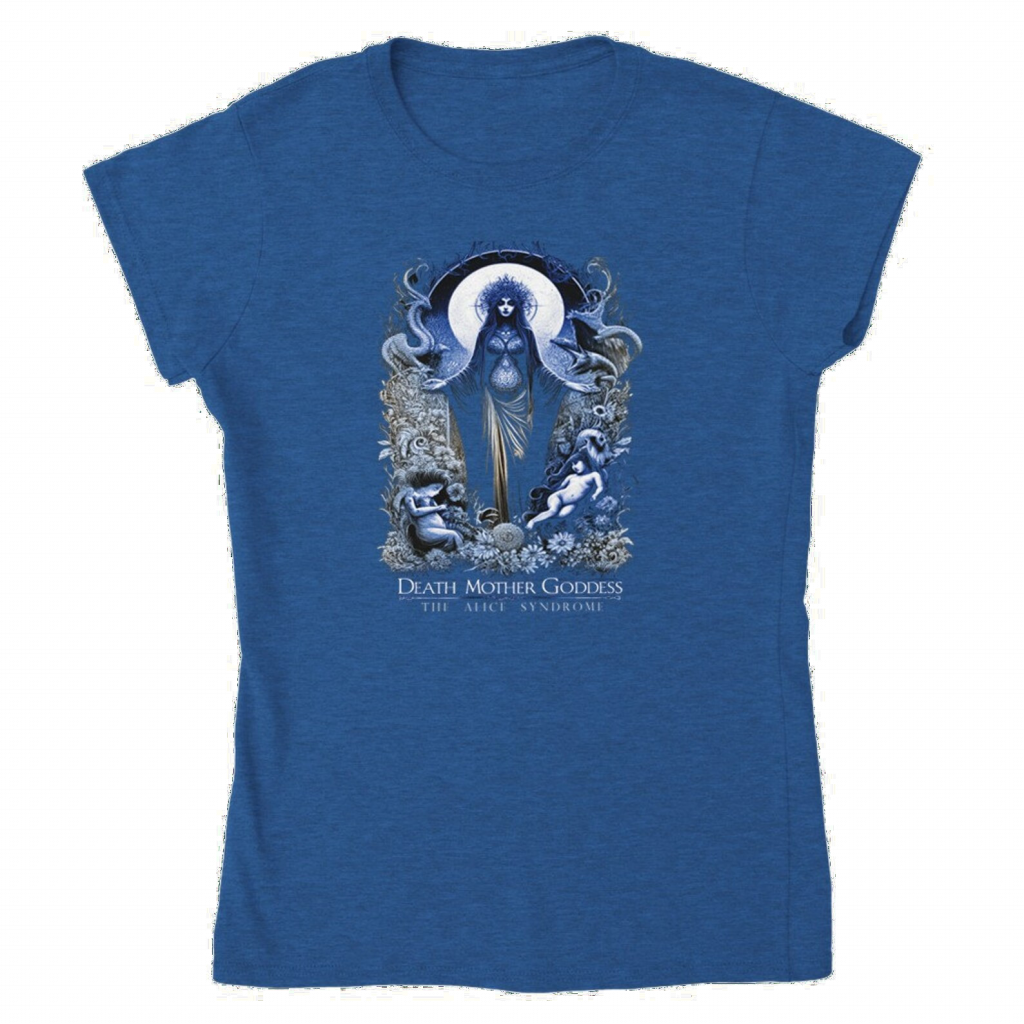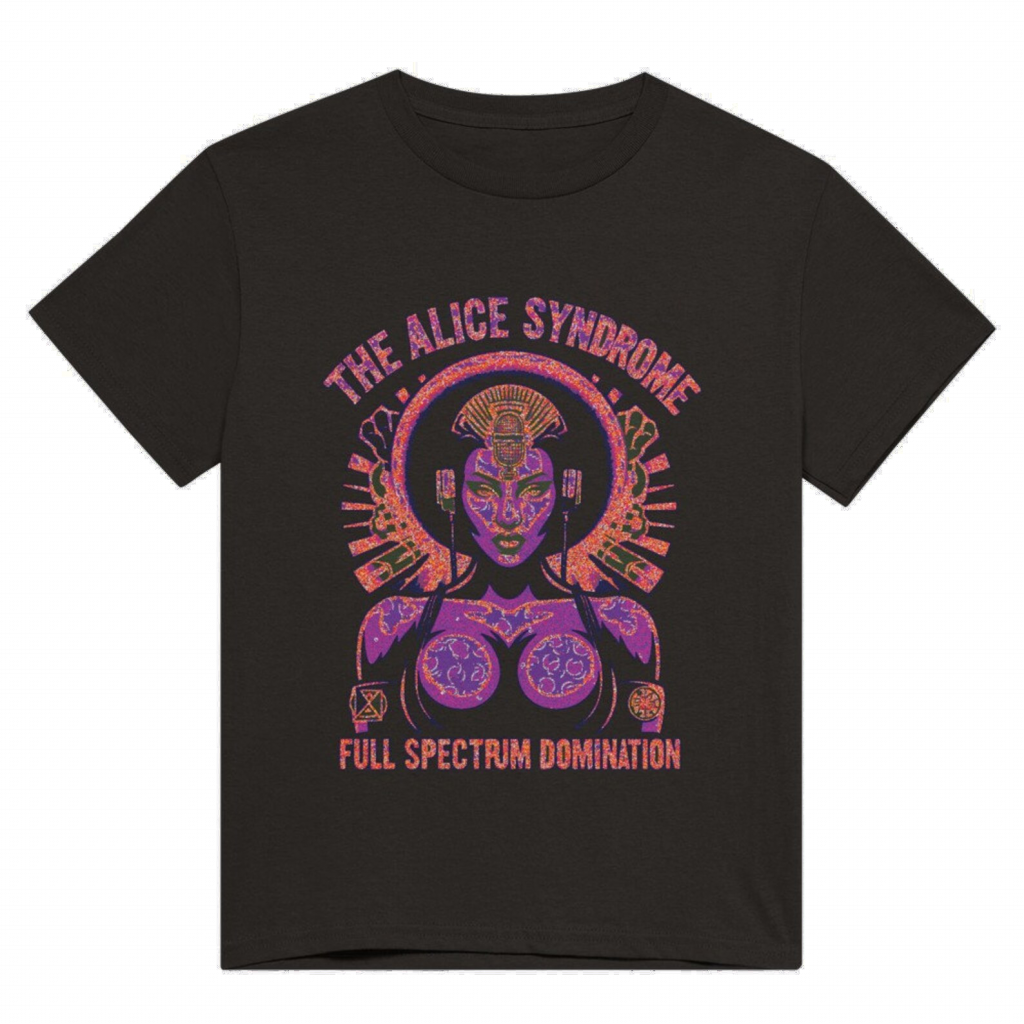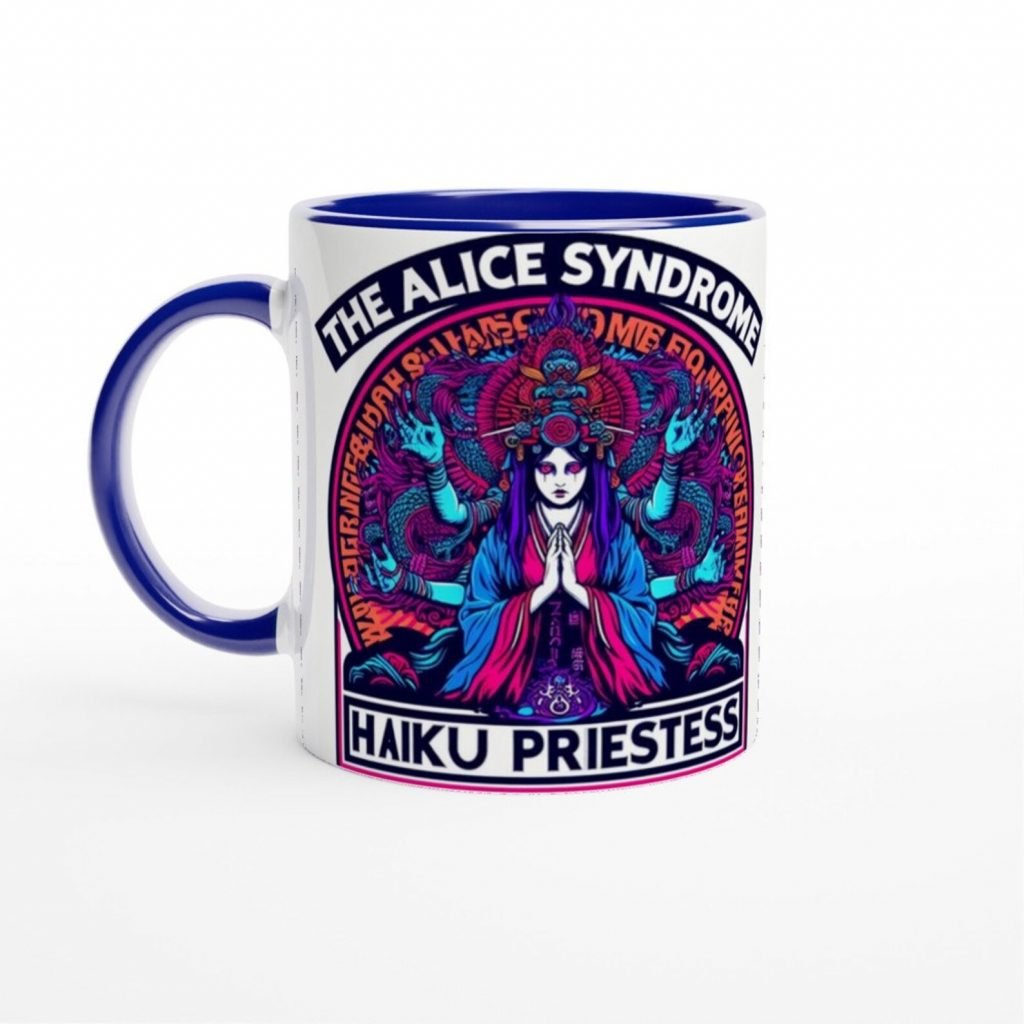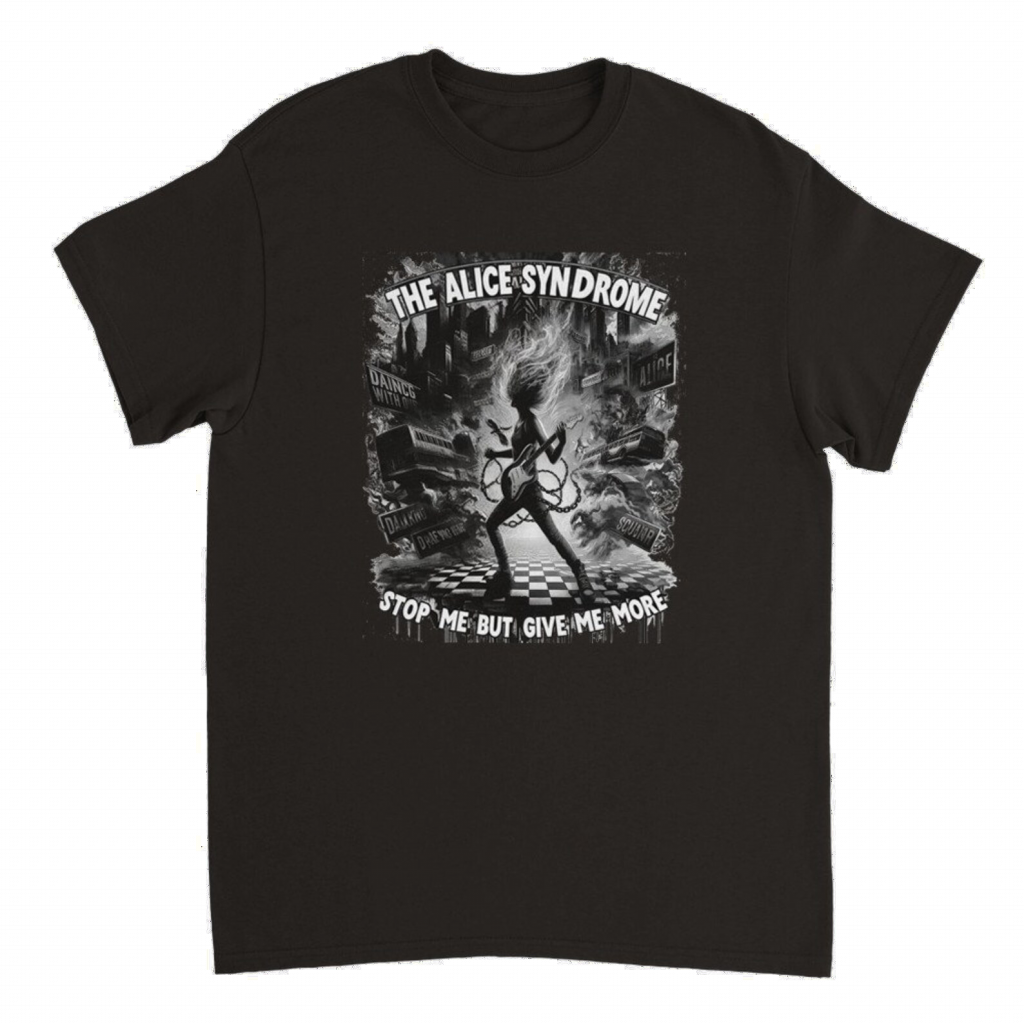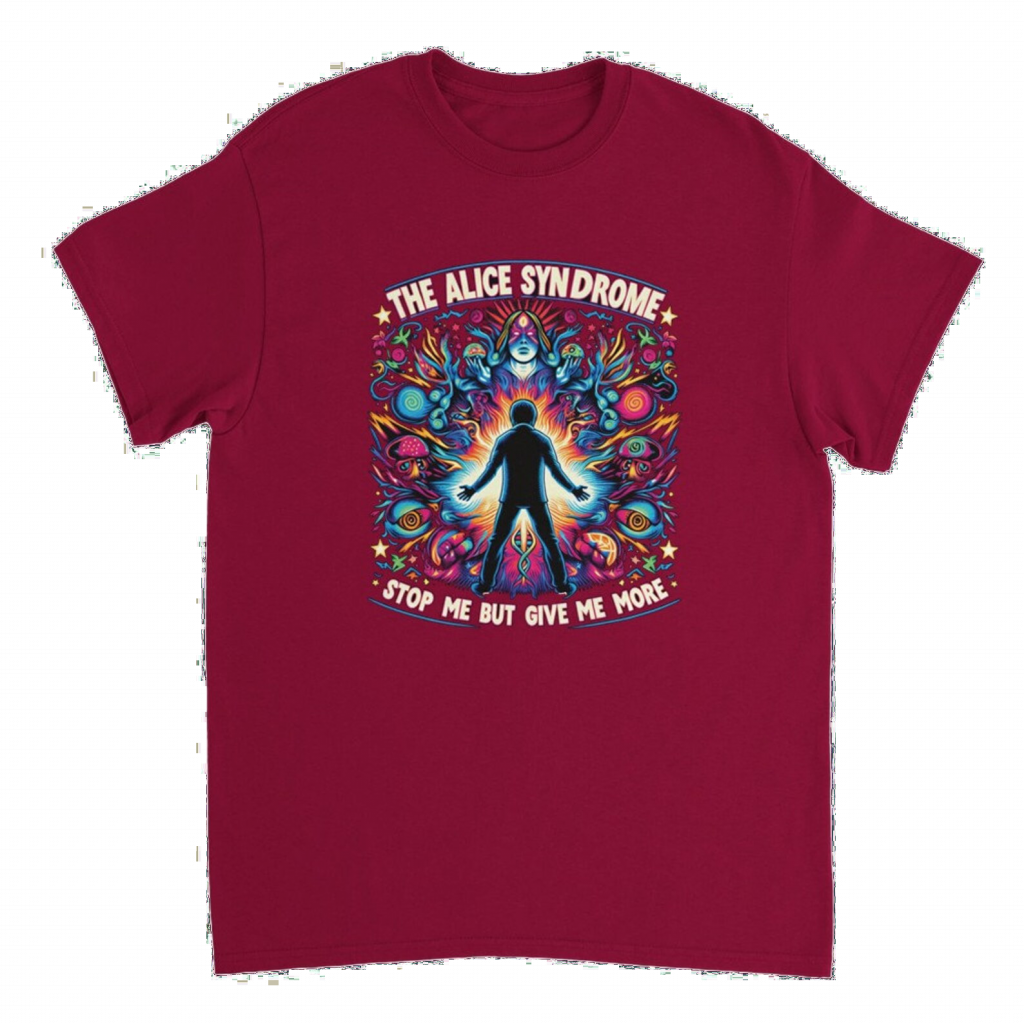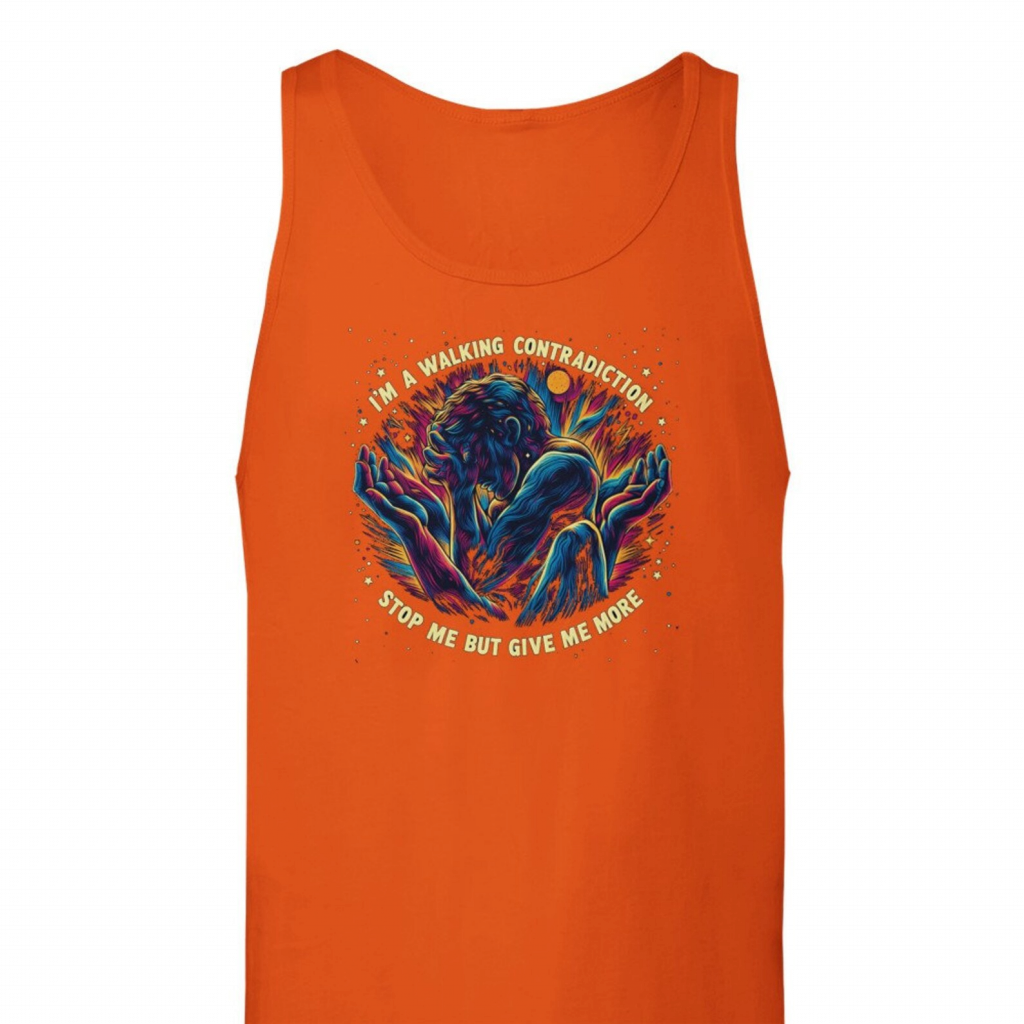Welcome to George’s blog. I play keyboards in the Alice Syndrome, and I’m also very interested in psychology, spirituality and self-transcendence.
Psychedelic Rock
Psychedelic rock is a genre of rock music that emerged in the mid-1960s and was influenced by psychedelic culture and hallucinogenic drugs. It’s a genre that is in the roots of The Alice Syndrome, with both founding members heavily influenced by early psychedelic rock bands and musical styles. The genre incorporated new electronic sound effects, extended instrumental solos, improvisation, and non-Western instruments such as the sitar.
Psychedelic rock also reflected the social and political changes of the 1960s, such as the counterculture movement, the Summer of Love, and the Woodstock festival. Psychedelic rock can be divided into two main variants: the British psychedelia, which was more whimsical and surreal, and the American acid rock, which was more aggressive and raw.
Some of the most influential psychedelic rock bands were the Beatles, the Rolling Stones, Pink Floyd, the Doors, Jefferson Airplane, and Jimi Hendrix. Psychedelic rock reached its peak in 1967-1969, before declining in popularity as musical tastes changed and some of its key figures died or left the scene (Britannica, n.d.; Wikipedia, n.d.; Rock’n’Roll Unravelled, 2020).
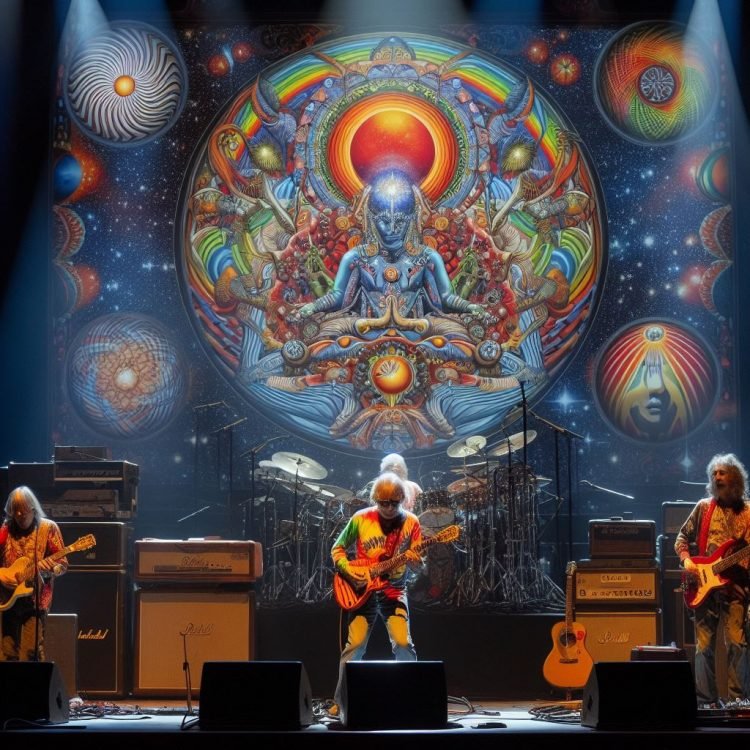
Space Rock
Space rock is a musical genre that emerged from the British psychedelic rock music scene in the late 1960s and early 1970s, influenced by science fiction themes, space exploration, and electronic sounds.
Bands such as Pink Floyd, Hawkwind, and Gong created long, experimental, and atmospheric compositions that often featured synthesizers, distorted guitars, and cosmic lyrics (Wikipedia, n.d.). Space rock was also associated with the West German kosmische Musik movement, which explored similar sonic territories with bands like Tangerine Dream, Ash Ra Tempel, and Can (Wikipedia, n.d.).
Space rock declined in popularity in the late 1970s, but was revived in the mid-1980s by bands like Spacemen 3, who combined space rock with drone music and drug culture (Ranker, n.d.). Space rock also influenced other genres such as shoegaze, post-rock, stoner rock, and ambient music, with bands like The Verve, Flying Saucer Attack, and Ozric Tentacles continuing the space rock tradition into the 1990s and beyond (Ranker, n.d.; Wikipedia, n.d.).
Gong and Hawkwind are two influential bands in the British psychedelic rock music scene, especially in the subgenre of space rock. Space rock is characterized by “loose and lengthy song structures centred on instrumental textures that typically produce a hypnotic, otherworldly sound” (Reverb, 2022).

Gong
Gong was formed in Paris in 1967 by Australian musician Daevid Allen and English vocalist Gilli Smyth, who had previously been members of Soft Machine (Wikipedia, 2022). Gong’s music is often described as space-rock, a genre that includes bands like Hawkwind and Pink Floyd (Psychedelicized, 2022).
The band’s mythology, centred around the fictional planet of Gong, provides an imaginative framework for their intricate compositions, which blend elements of psychedelic, progressive, and Canterbury scene rock (Ranker, 2022). Gong used synthesizers extensively in their albums, especially in the “Radio Gnome Invisible” trilogy, which is considered their best-known work (Reverb, 2022).

Hawkwind
Hawkwind was formed in London in 1969 by Dave Brock, Nik Turner, Mick Slattery, and Terry Ollis (Wikipedia, 2022). Hawkwind’s music is also classified as space-rock, and they are known for their “sci-fi lyrics, sonic experimentation, innovative use of electronics and light shows” (Wikipedia, 2022). Hawkwind’s most famous album is “Space Ritual”, a live double album recorded in 1972 that features spoken word pieces by sci-fi author Michael Moorcock (Wikipedia, 2022). Hawkwind also collaborated with Lemmy Kilmister, who later formed Motörhead, and Robert Calvert, a poet and singer who contributed to many of their albums (Wikipedia, 2022).
Besides Gong and Hawkwind, there are many other space rock bands that have contributed to the genre. Some of them are:

Pink Floyd: Perhaps one of the most universally known space rock bands, Pink Floyd has shaped the genre with their atmospheric soundscapes, intricate concept albums, and iconic live shows. Blending progressive rock, blues, and psychedelic influences, they have created timeless classics such as “Dark Side of the Moon” and “Wish You Were Here,” which continue to resonate with fans worldwide. Pink Floyd’s innovative use of technology and unique instrumentation, combined with introspective and thought-provoking lyrics, has solidified them as true visionaries in the realm of space rock. They have pushed boundaries and transcended traditional musical structures, leaving an indelible mark on music history (Ranker, 2022).

Ozric Tentacles: Founded in 1983, Ozric Tentacles stand out as a prime example of modern space rock, incorporating elements of electronic, world, and ambient music to create their own unique sound. Their improvisational and experimental approach to songwriting, inspired by both psychedelic and progressive rock, has produced mesmerizing sonic journeys that transport listeners to otherworldly dimensions. Over their 30+ year career, they’ve continuously expanded upon the space rock blueprint, incorporating new technologies and challenging the genre’s conventions. Ozric Tentacles’ ongoing evolution and dedication to pushing creative boundaries have firmly established them as trailblazers in the space rock community (Ranker, 2022).

Eloy: Eloy is a German progressive rock band that was formed in 1969 by Frank Bornemann. Eloy’s music is influenced by space rock bands like Pink Floyd and Hawkwind, as well as classical music and German literature. Eloy’s albums often feature conceptual themes and sci-fi stories that explore topics such as time travel, extraterrestrial life forms, and human destiny. Their sound is characterized by lush keyboards, soaring guitars, symphonic arrangements, and dramatic vocals. Eloy is considered one of the most important bands in the history of German rock music (Wikipedia, 2022).

Nektar: Nektar is another German progressive rock band that was formed in 1969 by Roye Albrighton. Nektar’s music is also influenced by space rock bands like Pink Floyd and Hawkwind, as well as jazz fusion and hard rock. Nektar’s albums often feature complex compositions and elaborate narratives that span multiple tracks. Nektar’s sound is characterized by melodic guitars, psychedelic keyboards, dynamic rhythms, and harmonized vocals. Nektar is known for having a rhythmic liquid/slide light show at their concerts that enhances their musical performance. Nektar is regarded as one of the pioneers of progressive rock (Wikipedia,
2022).
The evolution of space rock
The evolution of space rock continued in the mid-1980s to the present day, when new genres such as shoegaze, stoner rock, and post-rock, emerged from its influence.
Shoegaze is a genre that combines space rock’s use of distortion and reverb with dream pop’s ethereal melodies and vocals. Some examples of shoegaze bands are My Bloody Valentine, Slowdive, and Ride (Wikipedia, 2022).
Stoner rock is a genre that combines space rock’s heavy riffs and psychedelic elements with doom metal’s low-tuned guitars and slow tempos. Some examples of stoner rock bands are Kyuss, Sleep, and Electric Wizard (Wikipedia, 2022).
Post-rock is a genre that uses space rock’s instrumental textures and experimental techniques to create atmospheric and dynamic soundscapes that transcend conventional rock structures. Some examples of post-rock bands are Mogwai, Godspeed You! Black Emperor, and Sigur Rós (Wikipedia, 2022).
Space rock is a diverse and rich genre that has inspired many musicians and listeners over the decades. It is a genre that explores the unknown and the infinite, and creates a sonic experience that is both captivating and transcendent.
The current space rock music scene in the UK is diverse and vibrant, with many bands continuing to explore the possibilities of the genre and incorporating new elements from electronic, ambient, world, and stoner music. Some of the notable space rock bands in the UK today are:

Spiritualized: Formed in 1990 by Jason Pierce, Spiritualized is one of the most acclaimed space rock bands of all time. Their music combines elements of gospel, blues, soul, and orchestral arrangements with psychedelic and space rock influences. Their albums often feature conceptually ambitious themes and narratives, such as addiction, redemption, and death. Some of their most celebrated albums are Ladies and Gentlemen We Are Floating in Space (1997), Let It Come Down (2001), and And Nothing Hurt (2018) (Ranker.com, n.d.; Last.fm, n.d.).

Failure: Originally from Los Angeles, Failure is a space rock band that relocated to the UK in 2015 after reuniting following a 17-year hiatus. Their music is characterized by heavy guitar riffs, melodic vocals, and complex song structures that often incorporate unconventional time signatures and tempo changes. Their albums also feature interludes and transitions that create a cohesive and cinematic listening experience. Some of their most acclaimed albums are Fantastic Planet (1996), The Heart Is a Monster (2015), and In the Future Your Body Will Be the Furthest Thing from Your Mind (2018) (Ranker.com, n.d.; Last.fm, n.d.).

Hum: Hum is a space rock band from Champaign, Illinois that has been active since 1989. Their music is influenced by shoegaze, indie rock, and metal, and features distorted guitars, ethereal vocals, and dense layers of sound. Their lyrics often deal with themes of science fiction, astronomy, and existentialism. Their most successful album is You’d Prefer an Astronaut (1995), which spawned the hit single “Stars”. They released their first album in 22 years, Inlet, in 2020 (Ranker.com, n.d.; Last.fm, n.d.).
References
Britannica. (n.d.). Psychedelic rock | Origins, Influences & Genre-Defining Artists. Retrieved from https://www.britannica.com/art/psychedelic-rock
Last.fm. (n.d.). Space rock music | Last.fm. Retrieved January 24, 2024, from https://www.last.fm/tag/space+rock
Rock’n’Roll Unravelled. (2020).
The Psychedelic Sixties – Rock’n’Roll Unravelled. Retrieved from https://rocknrollunravelled.com/the-psychedelic-sixties/
Psychedelicized. (2022). Gong. Retrieved from https://psychedelicized.com/playlist/g/gong/
Ranker. (2022).
Space Rock Bands | List of Best Space Rock Groups. Retrieved from https://www.ranker.com/list/space-rock-bands-and-musicians/reference
Ranker. (n.d.). Space Rock Bands | List of Best Space Rock Groups. Retrieved from https://www.ranker.com/list/space-rock-bands-and-musicians/reference
Reverb. (2022). The Synths and Electronic Gear of Space Rock. Retrieved from https://reverb.com/uk/news/the-synths-of-space-rock
Wikipedia. (2022). Eloy (band). Retrieved from https://en.wikipedia.org/wiki/Eloy_%28band%29
Wikipedia. (2022). Gong (band). Retrieved from https://en.wikipedia.org/wiki/Gong_%28band%29
Wikipedia. (2022). Hawkwind. Retrieved from https://en.wikipedia.org/wiki/Hawkwind
Wikipedia. (2022). Post-rock. Retrieved from https://en.wikipedia.org/wiki/Post-rock
Wikipedia. (2022). Shoegazing. Retrieved from https://en.wikipedia.org/wiki/Shoegazing
Wikipedia. (2022). Space rock. Retrieved from https://en.wikipedia.org/wiki/Space_rock
Wikipedia. (2022). Stoner rock. Retrieved from https://en.wikipedia.org/wiki/Stoner_rock

















